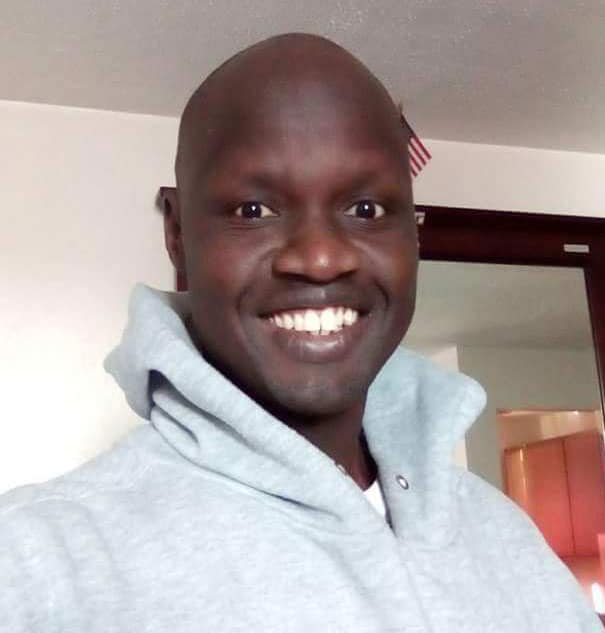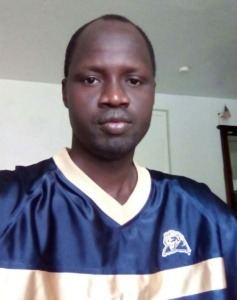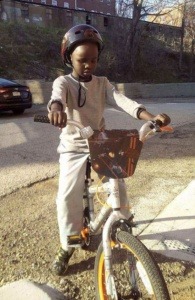
From Lost to Found: Daniel’s Story
On a cold day in Pittsburgh’s South Hills, Daniel Pach happily strolls into SHIM’s offices dressed head-to-toe in Pittsburgh sports gear. He greets everyone with a smile and is quick to share his love for the South Hills and for supporting his neighbors.
Those who meet Daniel would have no idea what he’s been through, the struggles he’s faced, but as he sits down to reveal a glimpse at deep, harsh scars lining his ankles and shins, it is clear this gentle, charismatic man has faced unimaginable trials.
Chapter 1
Becoming a ‘lost boy’
Growing up in Sudan, Daniel, just six-years-old in 1987, worked hard day-in-and-day-out on a cattle farm to help support his family. The labor was not easy, but being part of his daily routine, Daniel did not know anything else.
One morning, Daniel began work at the cattle farm a few miles away from his family’s home just like every other day. Little did he know, his life was about to change forever.
An attack from the Sudanese government began a war that continues to this day with thousands displaced, thousands killed. Scared, separated from his mother and family, with bodies lying around him and assuming his own family was dead, Daniel stayed with a group of boys who fled from Sudan to Ethiopia for refuge – walking more than 700 miles.
Just years later, in 1991, another war broke out, forcing the boys to return to Sudan from Ethiopia. Upon arrival, realizing Sudan was still unsafe, they fled again, this time to Kenya, another 1,030 miles on foot. These young men became known to the world as ‘the lost boys.’
“At least I was not walking by myself. I had others with me on my journey,” Daniel, a man with an optimistic view of life and the world despite his hardships, says of his fellow travelers.
In total, 27,000 young men fled Sudan. Just one year later, only 12,000 boys were still alive.
Throughout the journey, food and water were scarce, and the boys evaded constant threats. Daniel recalls a time when the boys crossed a river by rope while men shot at them from behind. These are a sampling of the harrowing experiences Daniel shares.
“When you’re running, you figure it out. You do what you have to do to survive,” Daniel explains. “A lot of the lost boys did not make it.”
Chapter 2
Finding refuge in Kenya
As the remaining boys arrived in Kenya, many emaciated, carrying each other, crawling and struggling to walk through the last of the journey, Kakuma, the refugee camp they would call home, offered safety. Here, they found education, food and a place to sleep, among many other displaced South Sudanese people.
But the trauma from the walk and the war haunted the lost boys. “Many of the other boys – who were like family to me – wanted to commit suicide. Many tried and succeeded. I tried to tell all of them that life will change. I would gather my family at the tree, and we would talk,” Daniel says.
When Daniel uses the term ‘family,’ he is referring to the other boys with whom he traveled. They became his family, and they stuck together. With Daniel’s immense optimism, he took it upon himself to cook for others in the refugee camp as a way to support his neighbors.
“Talking and cooking were the two things I did to support others – and also myself,” Daniel says of that time. “I promised myself to do good when life is good, and do good when life is bad. Despite everything, I was still so thankful to be alive.”
For 10 years, Daniel lived at the Kakuma refugee camp. Finally, in 2001, 18-year-old Daniel learned he’d be moving to Pittsburgh, Pa.
Chapter 3
Making an unfamiliar city home

Daniel felt sad to leave his friends, but excited to move on to a better life, making his move to American bittersweet. Daniel recalls, “I was friends with everyone, and we had all been through so much together.”
The arrival to Pittsburgh shocked Daniel. He learned how to use electricity for the first time; familiarized himself with technology, like cell phones and televisions; stared up at skyscrapers – something he’d never seen before; and even took his very first trip to a grocery store. Daniel and the other lost boys found daily tasks awkward but tried to adjust and get settled.
Daniel shared a small two-bedroom apartment with three other men in Prospect Park, Whitehall. He immediately sought a job, and began working at Lydia’s in the Strip District. While he already spoke some English, he started taking English classes, eventually earning his GED. Determined to be successful, Daniel worked his hardest on education and work.
After landing a job, settling in, and becoming more acclimated to life in Pittsburgh, Daniel took an interest in the homeless community. Often after work and in his free time, Daniel toured Pittsburgh’s city streets to talk with homeless people, offering them whatever money he had in his pocket.
He committed to helping his neighbors – just as he had at the refugee camp.
Chapter 4
The search for Mom
Still, Daniel did not feel whole. He became increasingly interested in finding his family members – wondering if any of them could still be alive.
He turned to the American Red Cross, which miraculously connected Daniel with his mother, alive and living in South Sudan. She already reconnected with some of Daniel’s other siblings.
“My mother was smart,” he says proudly. “When the war broke out, she buried food and put a tree over it, so she could remember where it was. Many died from hunger, but my mother was prepared.”
In 2007, Daniel returned to the banks of River Nile in South Sudan, where he did find his mother. His childhood community, however, no longer existed. During the visit, Daniel’s mother chose a wife for him, who soon was pregnant.
After three months, Daniel said goodbye to his family, returning to America determined to find a way for his wife and future child to join him.
Chapter 5
SHIM steps in during a hard time

War broke out again in Sudan shortly after Daniel’s return to Pittsburgh. His mother and wife moved to Kenya, where Daniel’s son Pach was born. Despite many efforts, Daniel could not convince his wife to join him in America. Eventually, when Daniel’s son was three, he brought him to America, and his wife stayed behind. Their marriage eventually ended.
Now a single father, Daniel found childcare to be extremely difficult to find and costly. He wanted to ensure Pach received the best education, learned English, and was safe.
As a longtime Prospect Park resident, Daniel knew about South Hills Interfaith Movement’s Family Center. While he never needed the organization’s assistance, he found himself in a place he’d never been before.
SHIM began doing at-home visits with Daniel and Pach, where they counseled Daniel on parenting techniques while helping Pach with social skills and play. Pach also attended SHIM’s early childhood program.
Despite all of SHIM’s support, Daniel still struggled to keep up with work, rent payments, and his education, and still provide Pach with the things he needed to thrive. He made the tough decision to take Pach back to Kenya to live with the boy’s grandmother.
“It was so hard, but I know it was for the best. I was making too much money to receive help for childcare, but not enough money to pay for it on my own,” Daniel explains. “But I am thankful for SHIM.”
Chapter 6
Being a Pittsburgher
Today, Daniel is 36-years-old, and working as a Certified Nursing Assistant at Community Care Baldwin Health Center. He often shows off his Pittsburgh sports gear and is enthralled with his community. He works seven days a week, sending money and support back to his son and mother. He is still trying to make arrangements for his mother and son to come live with him in the U.S., but until then, he is thankful for the technology that allows him to speak with them often.
“I miss them, but we Skype a lot,” Daniel says with a smile. “My son sends me pictures, and we use messenger.”
He continues to help the homeless population in Pittsburgh however he can, often striking up conversations and handing out cash to people he meets on the street.
He is proud to be in a position where he can help SHIM, whether by sharing his story or connecting with others in the Prospect Park community. “I try to give back like SHIM gave to me,” Daniel shares.
And even after all these years, he still keeps in touch with some of the other lost boys. “Everyone is busy now with their families, but we still keep tabs on each other and try to stay in touch,” he says.
Daniel hopes his story can help others in the community see refugees in a different light, “Many people don’t understand why refugees come here. They come here to find a new life because their life in their old country was so terrible.”
To learn more about Daniel’s story, consider watching ‘God Grew Tired of Us,’ a 2006 documentary featuring some of Daniel’s journey.
More stories
Read more stories about your neighbors
Test your refugee IQ
Take the quiz and see how well you know your refugee neighbors.
Get involved
Learn more about volunteer opportunities, host a food drive, or donate to support SHIM’s work.

